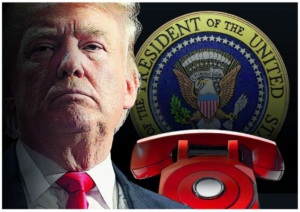I’m such a fence-straddler on this one.
Our nation’s presidential electors are meeting Monday to choose the next president of the United States. Do they proceed with electing Donald J. Trump, who 306 electoral votes — 36 more than he needs — or do they deny him the votes and throw the election either to candidate he defeated or to the House of Representatives?
The Albany (N.Y.) Times-Union has declared in an editorial that the electors should deny Trump the presidency.
http://www.timesunion.com/opinion/article/Electors-reject-Mr-Trump-10796574.php
Oh, man. I’ve read the editorial twice; I’ll read it some more. The paper makes a strong argument for the electors to yank the presidency away from someone who is wholly unprepared, unqualified and unfit for the job.
Electors from most of the states, though, are bound by state rules that require them to remain faithful to the will of their states’ majority. Other state electors — such as those from Texas — aren’t bound by those rules.
The U.S. Constitution allows such a rebellion to occur. It doesn’t quite address the chaos that would ensue if electors were to deny the Electoral College winner the presidency.
It’s never happened in the history of the Republic, although the House has chosen a president: John Quincy Adams in 1824.
So help me, I cannot yet take that leap.
I agree with the Times-Union’s assessment of Trump’s ability to do the job. His campaign-style “thank you” rallies are troubling in the extreme; he should be spending his time learning about the details of governing a nation comprising more than 300 million citizens. He’s selecting a collection of individuals for his Cabinet who have limited experience dealing with the agencies they would lead and in some cases are openly hostile to the policies they are being asked to implement.
And we have this issue of alleged Russian tampering with our electoral process. Did the president-elect benefit directly from foreign interference?
It is true, as the editorial points out, that the founders set up the Electoral College to shield the nation against “foreign influence.”
The founders also set up a mechanism for Congress to act as a check against presidential overreach. It’s called impeachment. If a president crosses any one of the many boundaries set up to limit the power of the office, the House can intercede with articles of impeachment, followed by a trial in the Senate.
I’m going to give this some more thought. I might get to you later, before the Electoral College meets.
I’ve been watching the presidential electoral process closely for four decades and I’ve never seen questions like these raised prior to the transition of one presidency to another.
It’s beginning to stress me out.
